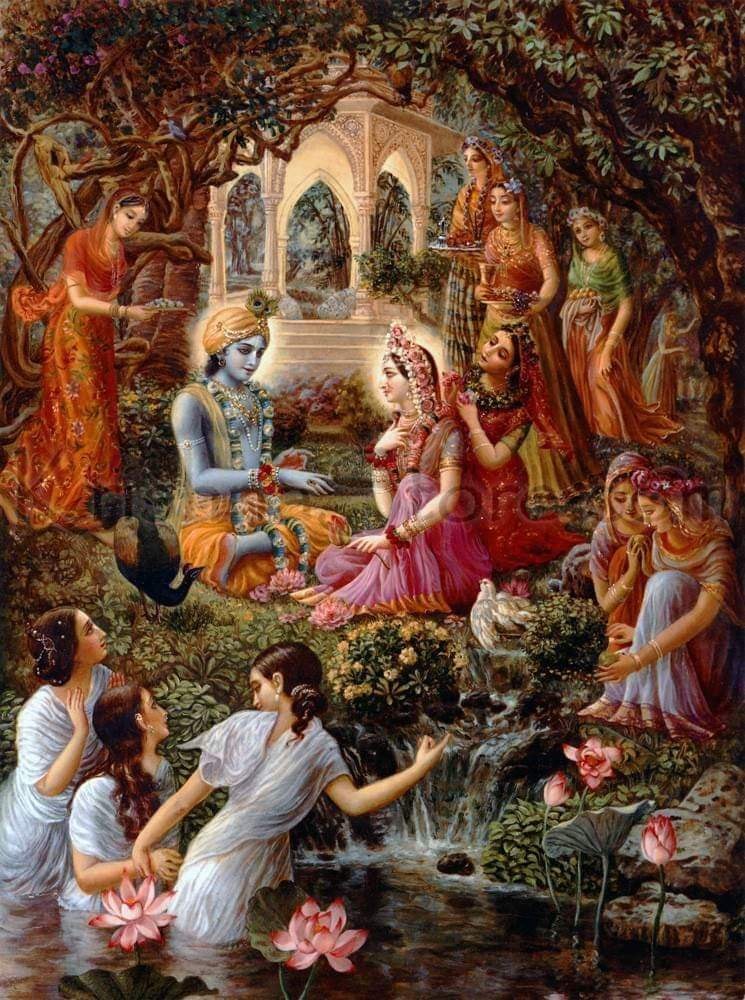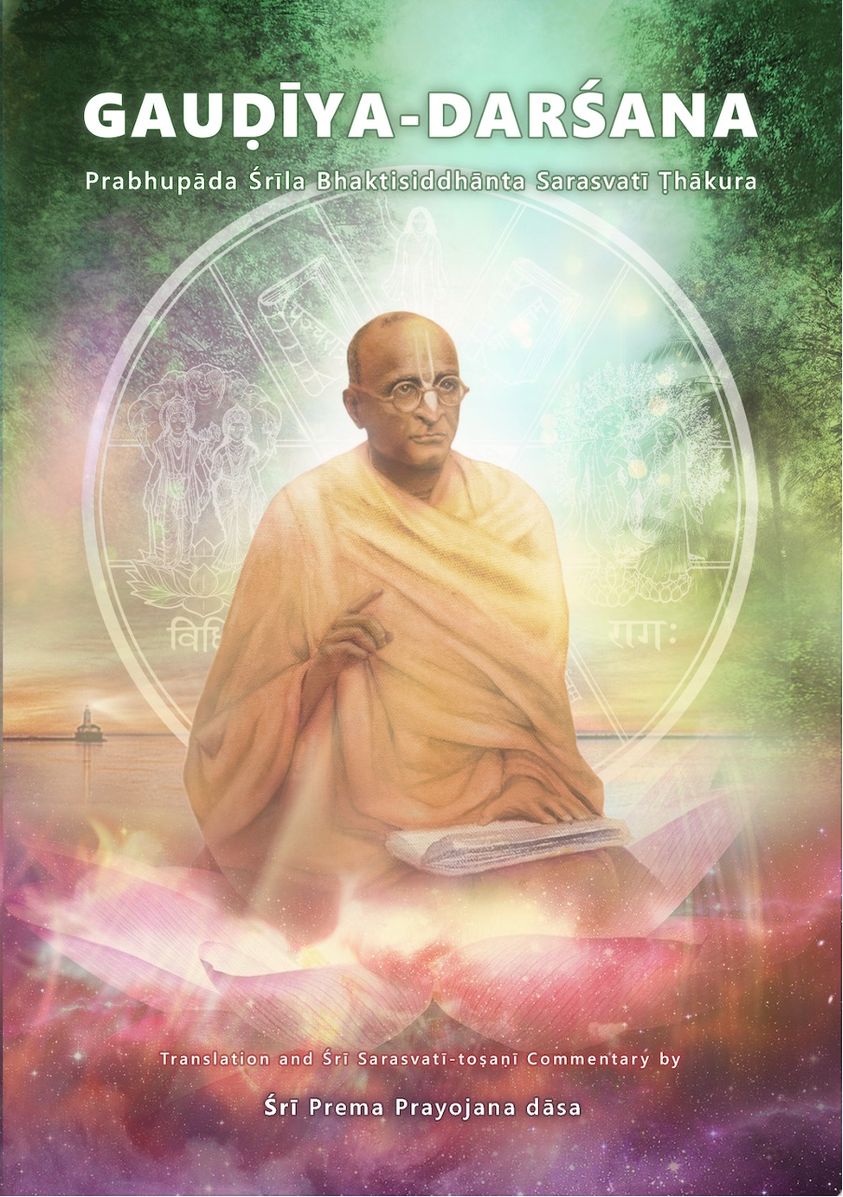ON-DUPLICITY AND COMPASSION: PREREQUISITES FOR THE SINCERE OBSERVANCE OF BHAGAVAT-DHARMA
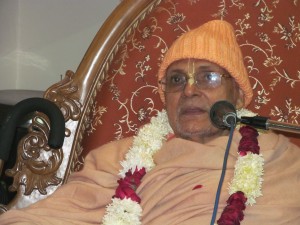
Pujapad Bhakti Vigyan Bharati Maharaja
“The great scripture Srimad-Bhagavatam, compiled by Maha-muni Vyasadeva from four original verses, describes the most elevated and kindhearted devotees and completely rejects the cheating ways of materially motivated religiosity. It propounds the highest principle of eternal religion, which can factually mitigate the threefold miseries of a living being and award the highest benediction of full prosperity and knowledge. Those willing to hear the message of this scripture in a submissive attitude of service can at once capture the Supreme Lord in their hearts. Therefore there is no need for any scripture other than Srimad-Bhagavatam.” Sri Caitanya-caritamrta Adi-lila, 1.91
Srila Bhakti Vijnana Bharati Maharaja…
In the beginning of Srimad-Bhagavatam, Srila Vedavyasa has stated
dharmah projjhita-kaitavo 'tra paramo nirmatsaranam satam
vedyam vastavam atra vastu sivadam tapa-trayonmulanam
srimad-bhagavate maha-muni-krite kim va parair isvarah
sadyo hridy avarudhyate 'tra kritibhih susrushubhis tat-kshanat
Srimad-Bhagavatam (1.1.2)
“In this Srimad-Bhagavatam, I will explain bhagavat-dharma, the true and topmost duty of the living entities.
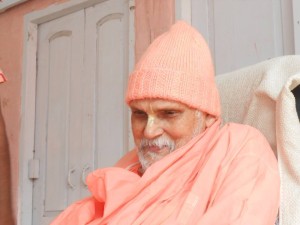
If a person devotedly hears this most sublime scripture and follows the bhagavat-dharma explained within, his threefold miseries will be destroyed, he will meet with all auspiciousness and he will then realize true knowledge about the Supreme Truth. Thus, he will become able to bind the Supreme Lord within his heart as per his own sweet will. “For a person desirous of attaining the above-mentioned symptoms, there is no need to hear or follow any scripture other than Srimad-Bhagavatam, but an applicant of the university of bhagavat-dharma must have two qualifications. Firstly, he should not engage in kaitava (pretentious, cheating activities) and secondly, he should be a nirmatsara sadhu, a person whose heart is full of compassion for all living beings, including himself.” We will firstly discuss the word kaitava (pretentious, cheating activities).
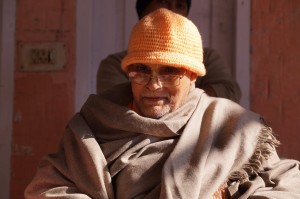
Srila Krishnadasa Kaviraja Gosvami has written in Sri Caitanya-caritamrta (Adi-lila, 1.90-92)
90
ajnana-tamera nama kahiye ‘kaitava’
dharma-artha-kama-moksa-vashcha adi saba
"The darkness of ignorance is called kaitava, the way of cheating, which begins with religiosity, economic development, sense gratification and liberation."
91
dharmah projjhita-kaitavo ’tra paramo nirmatsaranam satam
vedyam vastavam atra vastu siva-dam tapa-trayonmulanam
srimad-bhagavate maha-muni-krite kim va parair isvarah
sadyo hridy avarudhyate ’tra kritibhih susrushubhis tat-kshanat
“The great scripture Srimad-Bhagavatam, compiled by Maha-muni Vyasadeva from four original verses, describes the most elevated and kindhearted devotees and completely rejects the cheating ways of materially motivated religiosity. It propounds the highest principle of eternal religion, which can factually mitigate the threefold miseries of a living being and award the highest benediction of full prosperity and knowledge. Those willing to hear the message of this scripture in a submissive attitude of service can at once capture the Supreme Lord in their hearts. Therefore there is no need for any scripture other than Srimad-Bhagavatam.”
92
tara madhye moksa-vashcha kaitava-pradhana
yaha haite Krishna-bhakti haya antardhana
"The foremost process of cheating is to desire to achieve liberation by merging into the Supreme, for this causes the permanent disappearance of loving service to
Krishna"
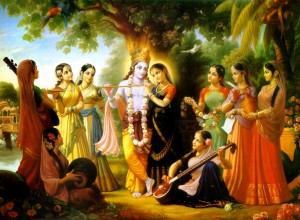
Lord Krishna The Supreme Personality Of Godhead
The superlative degree of ignorance (ajshana-tama) is called kaitava and it refers to activities performed to attain dharma, artha, kama and moksa. Amongst these, the desire for moksa is foremost, because it results in the disappearance of Krishna-bhakti. From this, we can understand that acts performed with the aim of attaining *dharma, artha, kama or moksa are done so due to a superlative degree of ignorance, that is, a sheer lack of knowledge.
It is essential for an aspiring sadhaka to understand the svarupa (intrinsic nature) of these four things and we will therefore discuss them at this time. DHARMA: Here, dharma refers to the activities prescribed in the Vedas, such as varnasrama-dharma, and not to atma-dharma. Varnasrama-dharma means to only perform prescribed duties according to one’s varna, or social order (brahmana, ksatriya, vaisya and sudra), and asrama, or spiritual order (brahmacari, grhastha, vanaprastha and sannyasi). Srila Krishnadasa Kaviraja Gosvami has stated that although one may be promoted to higher planetary systems by following varnasrama-dharma, in reality that person falls into a hellish condition of material life if he fails to render service to Krishna.
Cari varnasrami yadi Krishna nahi bhaje svakarma karite se raurave padi’ maje Sri Caitanya-caritamrta (Madhya-lila, 22.26)
“The followers of the varnasrama institution accept the regulative principles of the four social orders [brahmana, kshatriya, vaisya and sudra] and four spiritual orders [brahmacarya, grihastha, vanaprastha and sannyasa]. However, if one carries out the regulative principles of these orders but does not render transcendental service to Krishna, he falls into a hellish condition of material life."
Such a person adhering to the deceptive path of varnasrama-dharma remains bereft of the eligibility to be promoted to his permanent transcendental residence, which is beyond this material existence. Therefore, he remains within the fourteen planetary systems where he suffers the results of his karma, whether pious or impious. For example, if a person is locked in a dark room and is not given anything to eat or drink, he will surely die of starvation or dehydration after some time.
Alternatively, if a person is force-fed an abundant amount of eatables and is whipped every moment he refrains from eating, he will also surely die. Just as these two methods, starvation and overeating, are opposite but equally effective methods for killing someone, the jiva suffers both the punishment and pleasure meted out by Maya-devi, who gives jivas residence in the upper or lower planetary systems according to the jiva’s karma and they suffer in both places. It is for this reason that Srila Kaviraja Gosvami had envisioned the results of following varnasrama-dharma as hellish.
ARTHA: The word artha here refers to worldly material wealth and not Krishna prema-dhana, the supreme goal and true wealth of the jiva. In one of his kirtanas, Srila Bhaktivinoda Thakura has written:
dhane jadi prana dita, dhani raja na marita
dharamar hoit ravana. dhane nahi rakhe deho
deho gele nahe keho, ataeva ki koribe dhana
Sri Kalyana Kalpa-taru (1st Branch, Song 12, Verse 3)
"If wealth were to have the power to prolong life, then a rich king would never have to die, and Ravanva, the king of Lanka (who had a palace made out of gold), would have become an eternal resident of the Earth planet. By wealth one cannot protect one’s body, and if the body goes, one does not have a connection with anyone. Therefore what will be done with such wealth?"
The conclusion is that material wealth does not protect anyone. Instead, we see that in most cases the words of Srila Krishnadasa Kaviraja Gosvami prove true:
tathapi visayera svabhavakare maha-andha sei karma karaya, yate haya bhava-bandha Sri Caitanya-caritamrta (Antya-lila, 6.199)
"The nature of material wealth is to extend complete blindness and force a person to perform such activities by which he becomes trapped in material existence."
Although one may externally wear Vaisnava dress, tilak, and so on, perform some act of bhajana-kriya, and has even externally taken initiation he is not to be considered a pure Vaisnava until he is devoid of all material desires.
Wealth, in the form of finances, position and other things, are blinding, and they force one to perform such activities by which one becomes entangled in material affairs. If after hearing and being fully aware of this fact a person willfully engages his time and energy in accumulating the wealth of this material world, then it is purely self-deception. Srila Krishnadasa Kaviraja Gosvami has stated:
prema dhana vina vyartha daridra jivana
‘dasa kari’ vetana more deha prema-dhana
Sri Caitanya-caritamrta (Antya-lila, 20.37)
"My unsustainable life is useless without the treasure of love for You, and I therefore pray that You accept Me as Your servant and give Me a wage in the form of prema (pure love of God"
The only wealth worthy of our aspiration is prema-dhana. It is eternal, full of transcendental bliss, and it completely attracts Sri Krishna. Thus, it has the capacity to take us to the spiritual world, our eternal home.
*Dharma, artha, kama and moksha The four goals of life which materialists, and not devotees, hold dear. Formal dharma is rendered by worship for results and artha (material development) follows. Enjoying the fruits of activities is kama. Those who are wise are disgusted by the sense enjoyment and then desire moksha. Said in different way, artha is represented by the shudra class in society, artha by the vaishyas, kama by the kshatriyas and moksha is sought after by the brahmana class. Moksha is the highest goal of varnashram system. Lord Shri Krishna declares in Bhagavad Gita (4.13) that He personally created the four divisions in human society. Being the authority over His creation, Shri Krishna as Chaitanya Mahaprabhu stated in His famous conversation with Ramananda Raya that varnashrama is not His main interest and He wanted to hear about more elevated topics describing devotional activities to the Supreme Lord.

 Posted in
Posted in 






